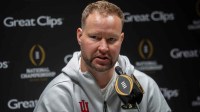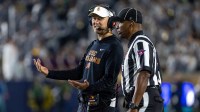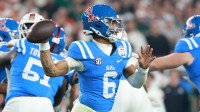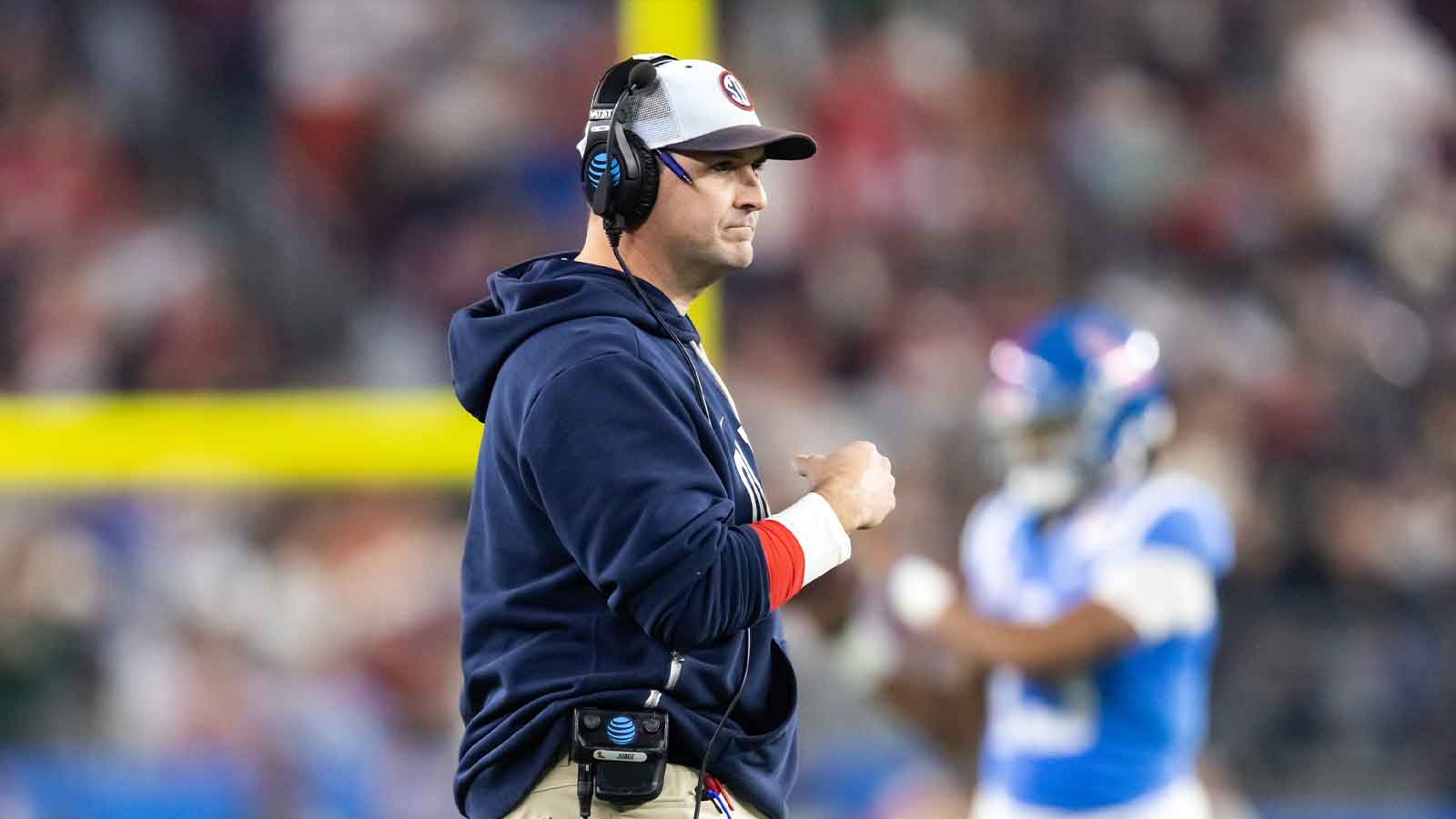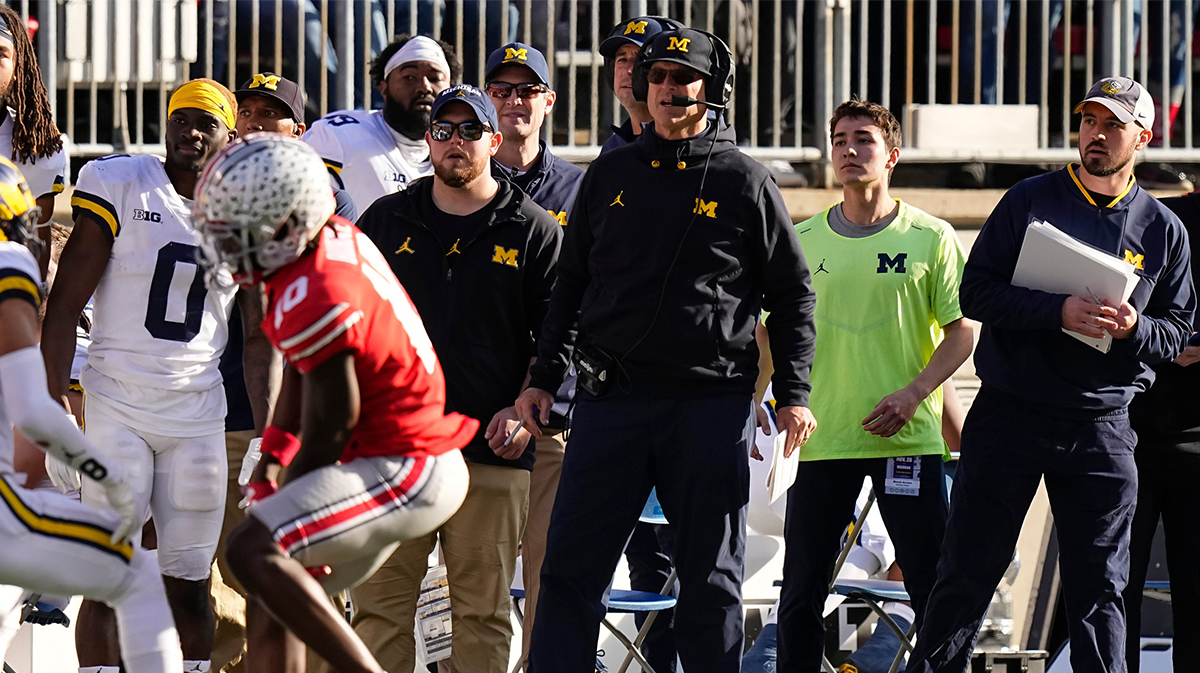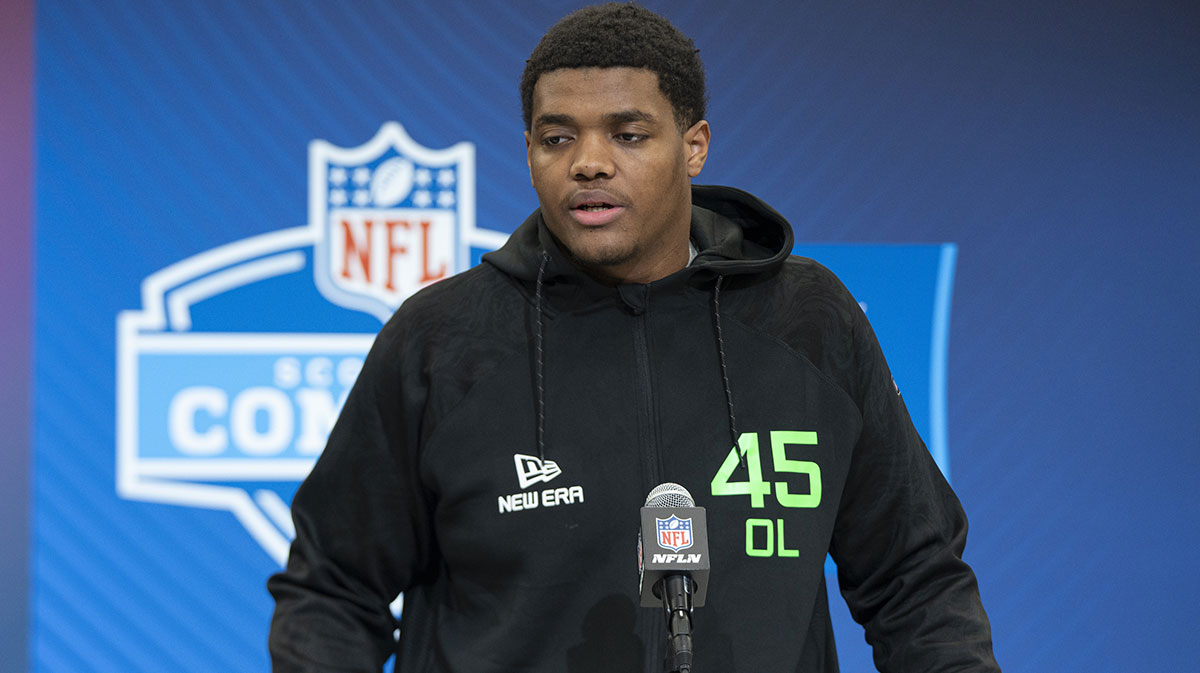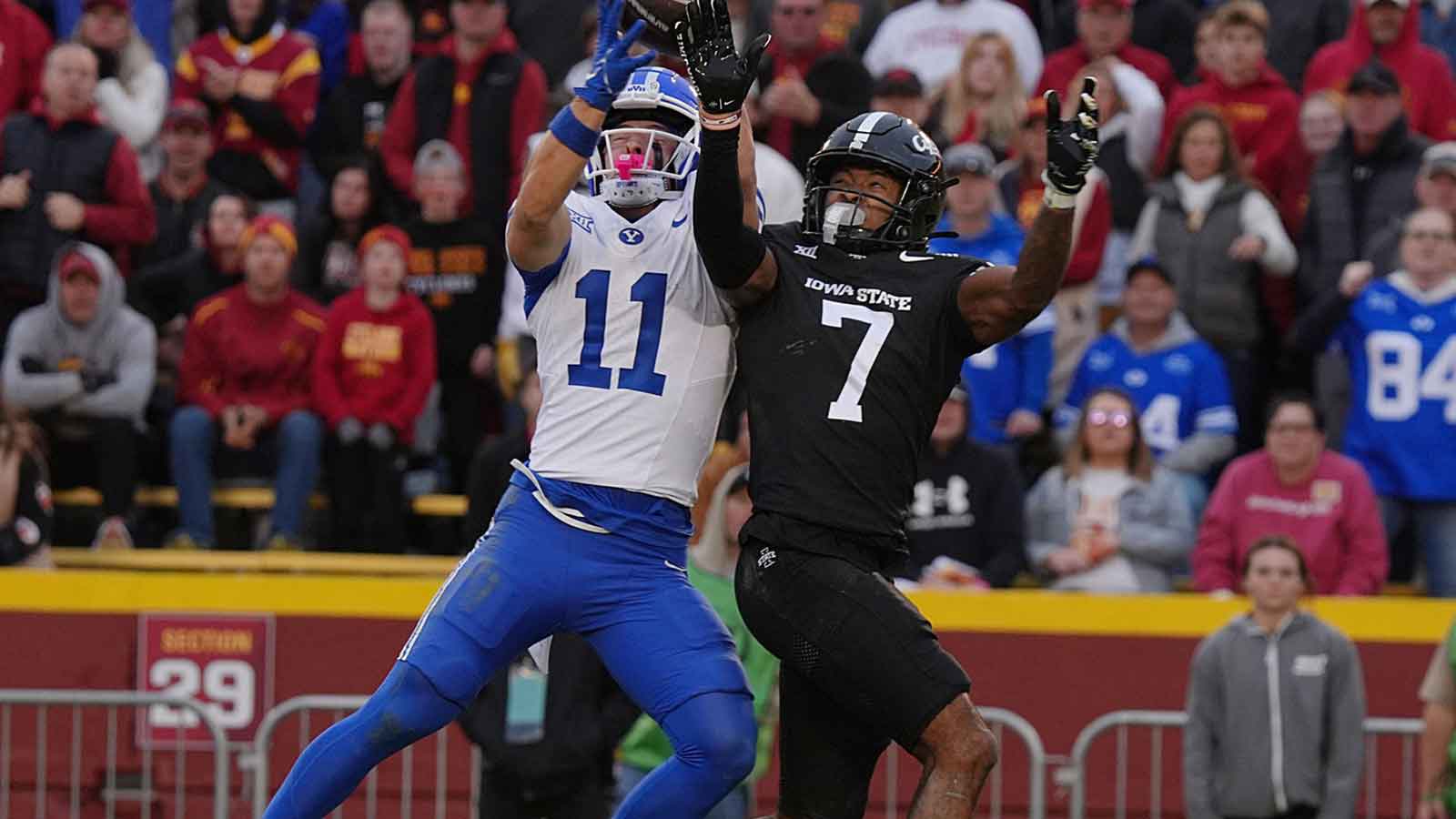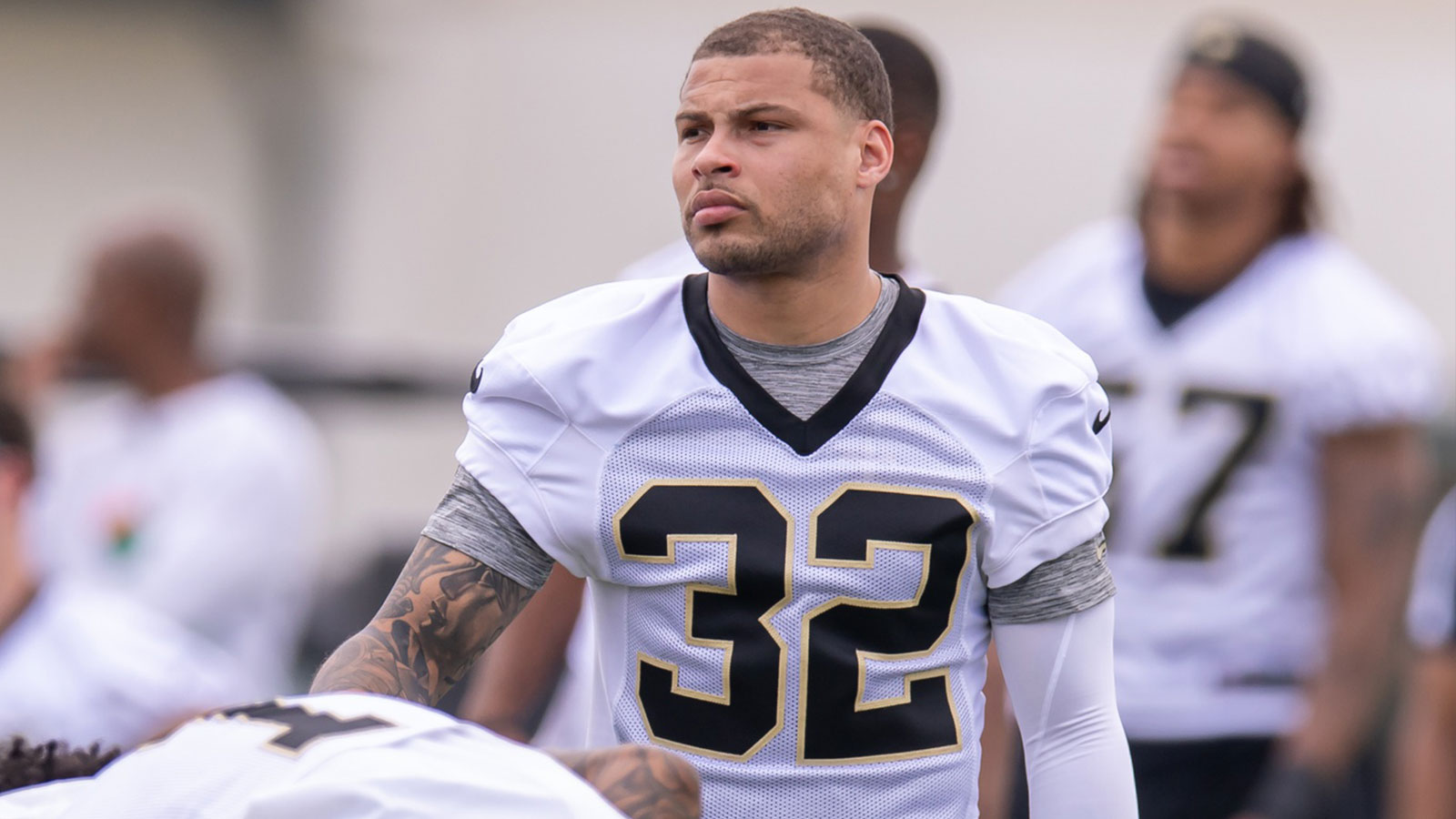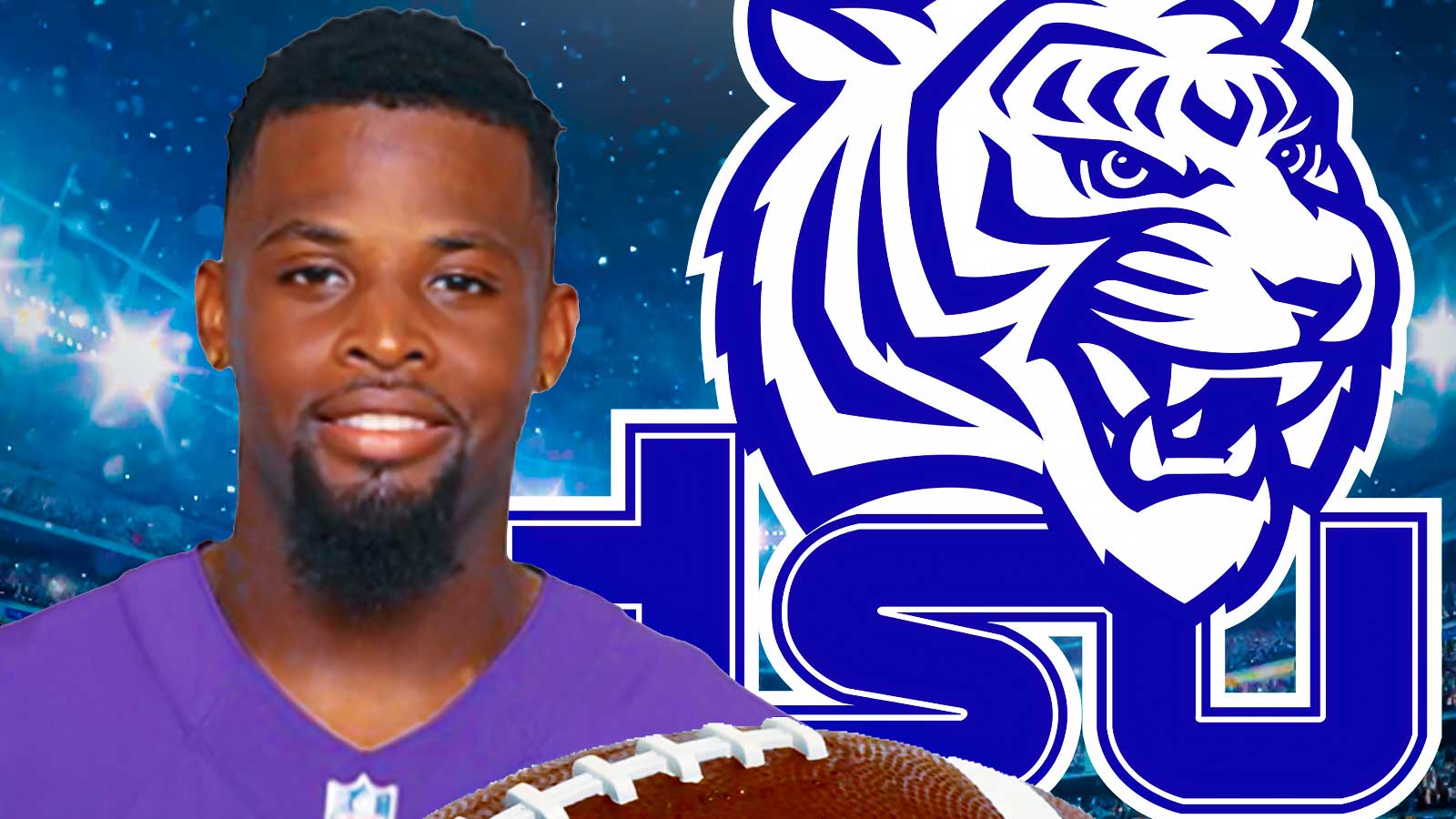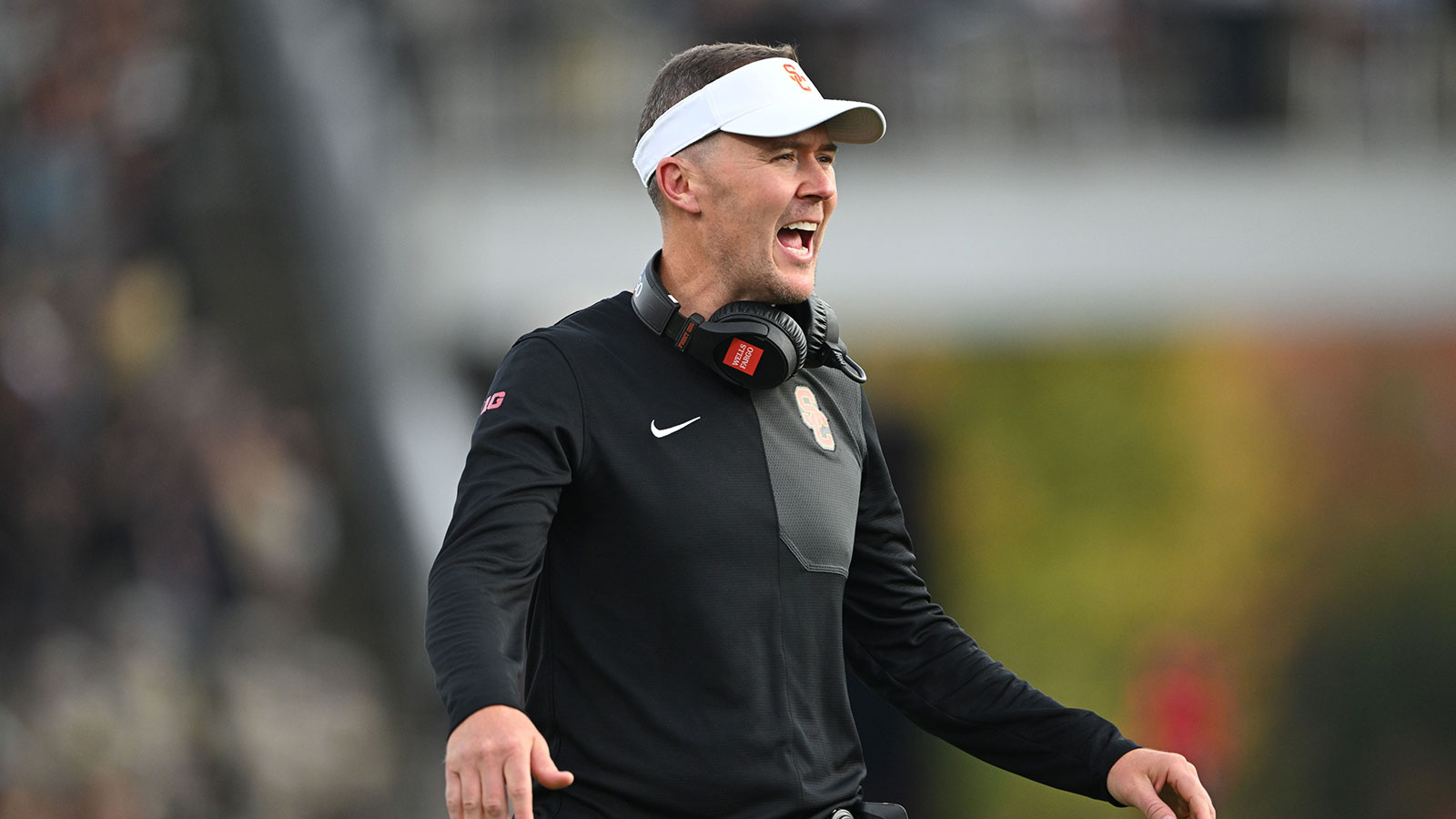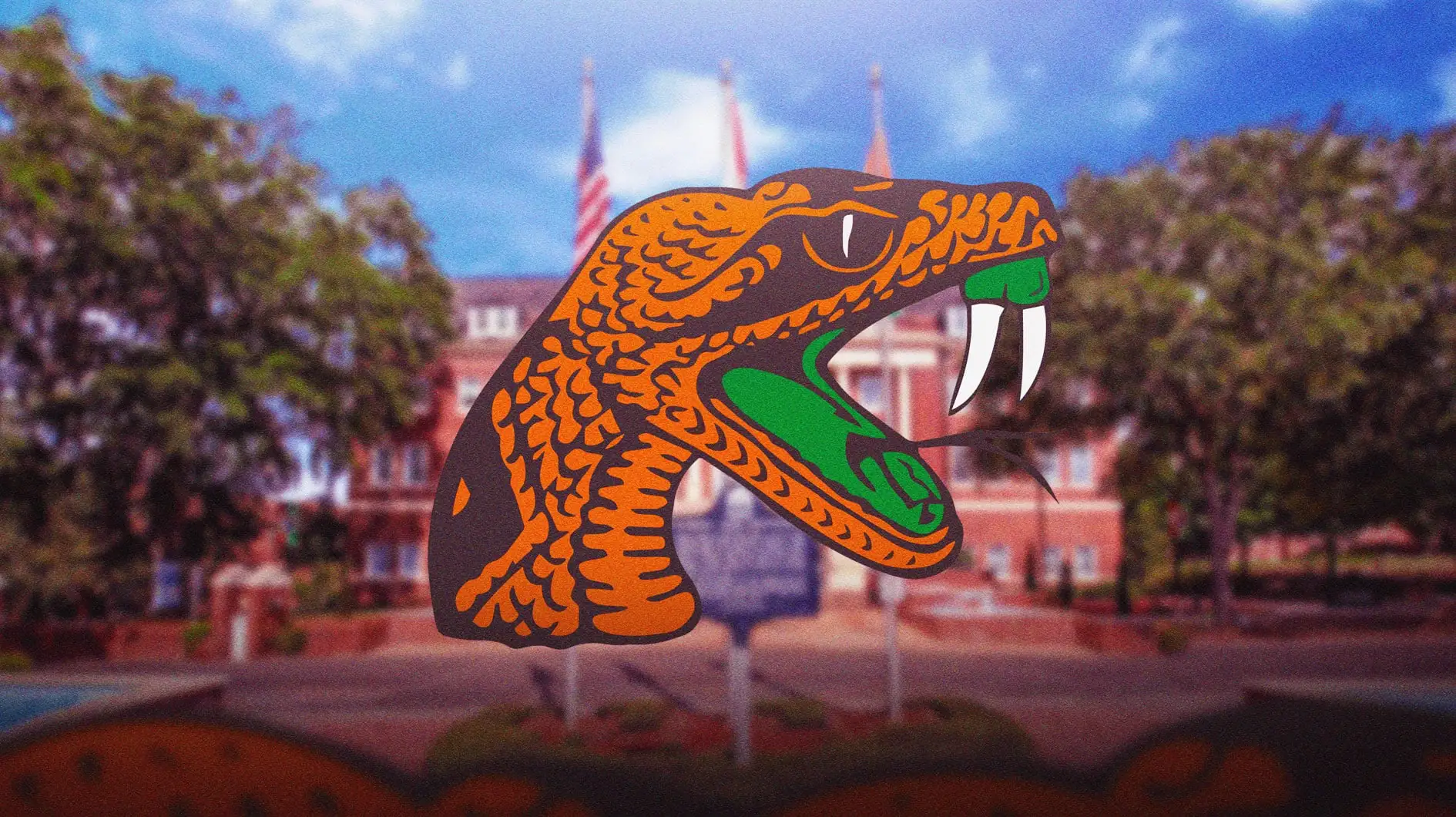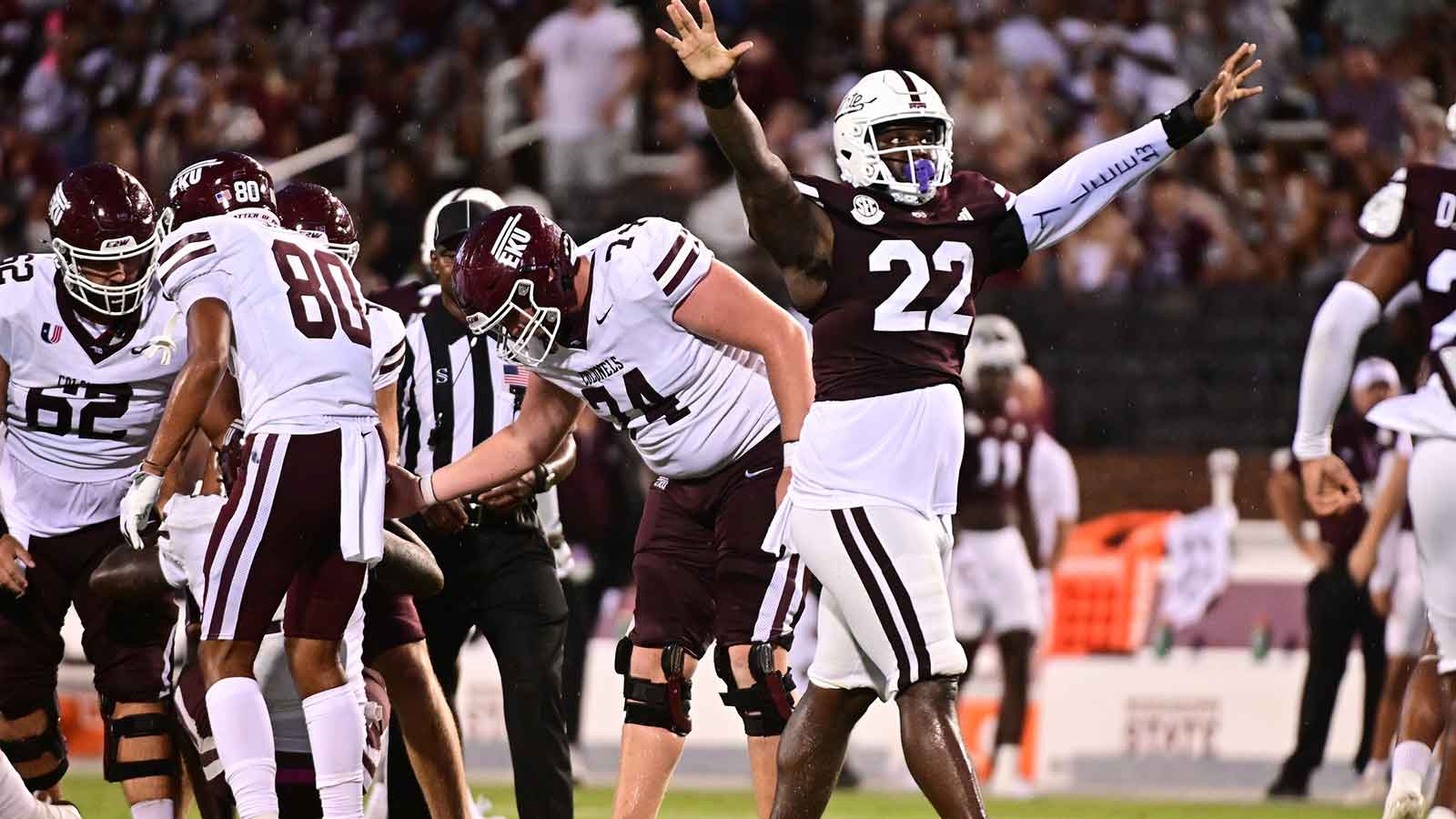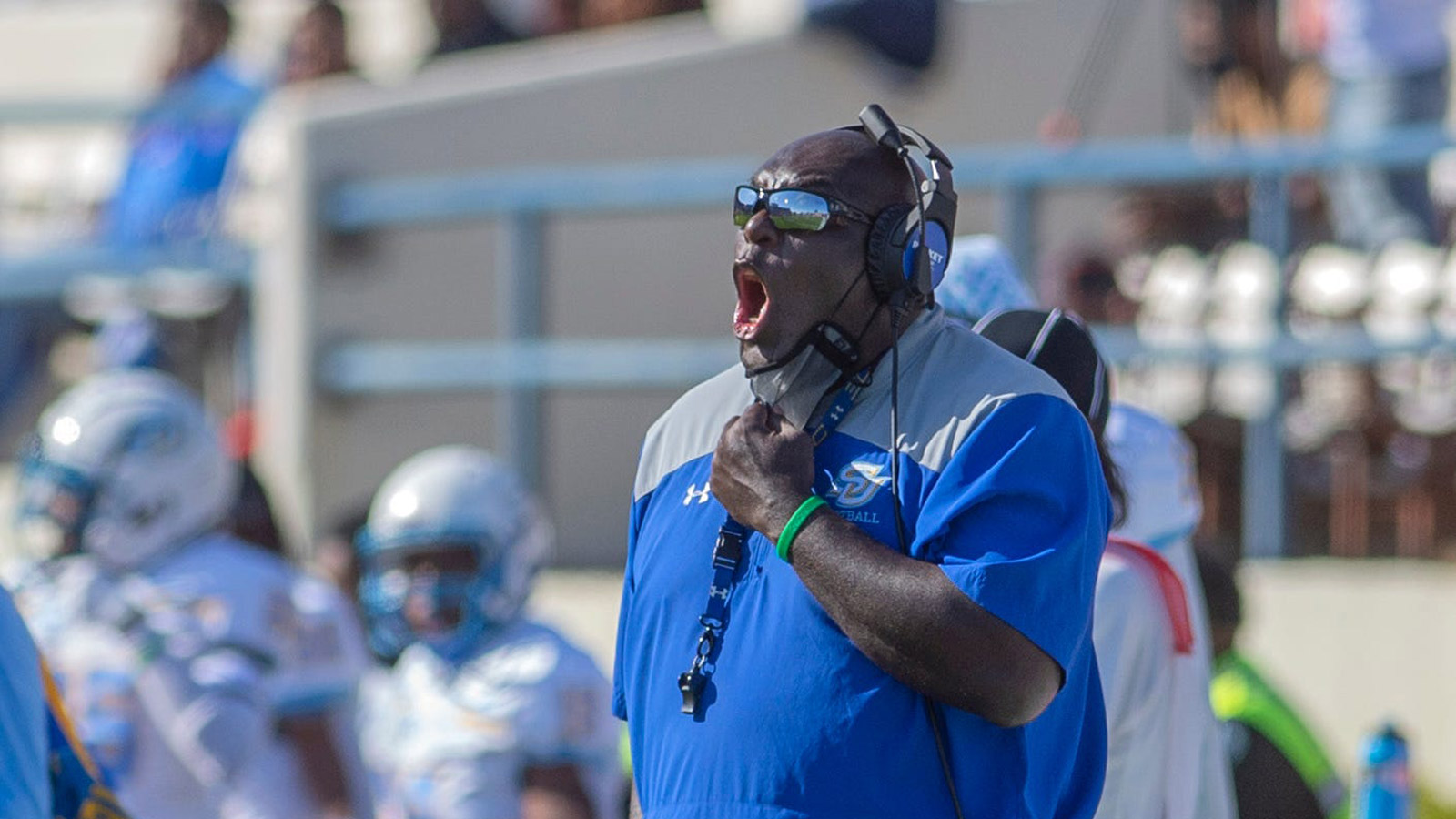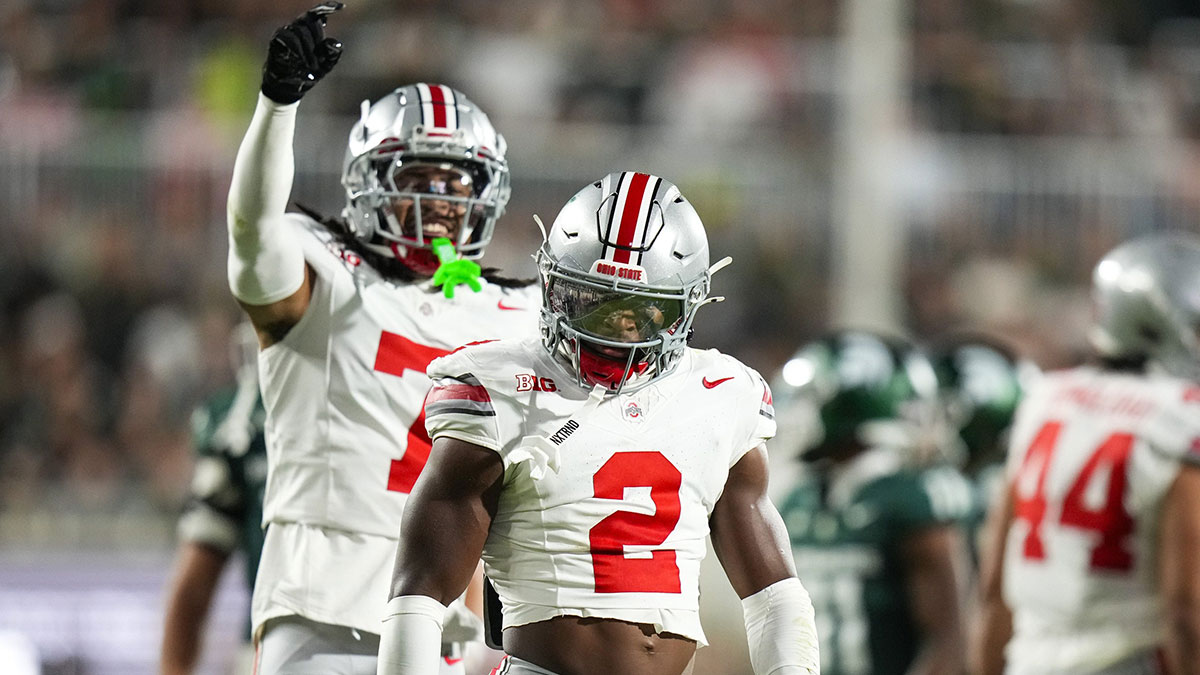It hasn't even been two weeks since the Michigan football scouting and sign-stealing story initially broke, but it feels like we've been discussing it for an eternity now, doesn't it? Day by day, hour by hour, more news continues to trickle out, and the combination of damning evidence and harsh blowback just keeps building like a massive tidal wave.
It leads one to wonder how this monumental story will continue to unfold and eventually conclude. But before we get to that, it's worth revisiting the entire chain of events that led to this moment in time.
The NCAA begins to investigate the University of Michigan
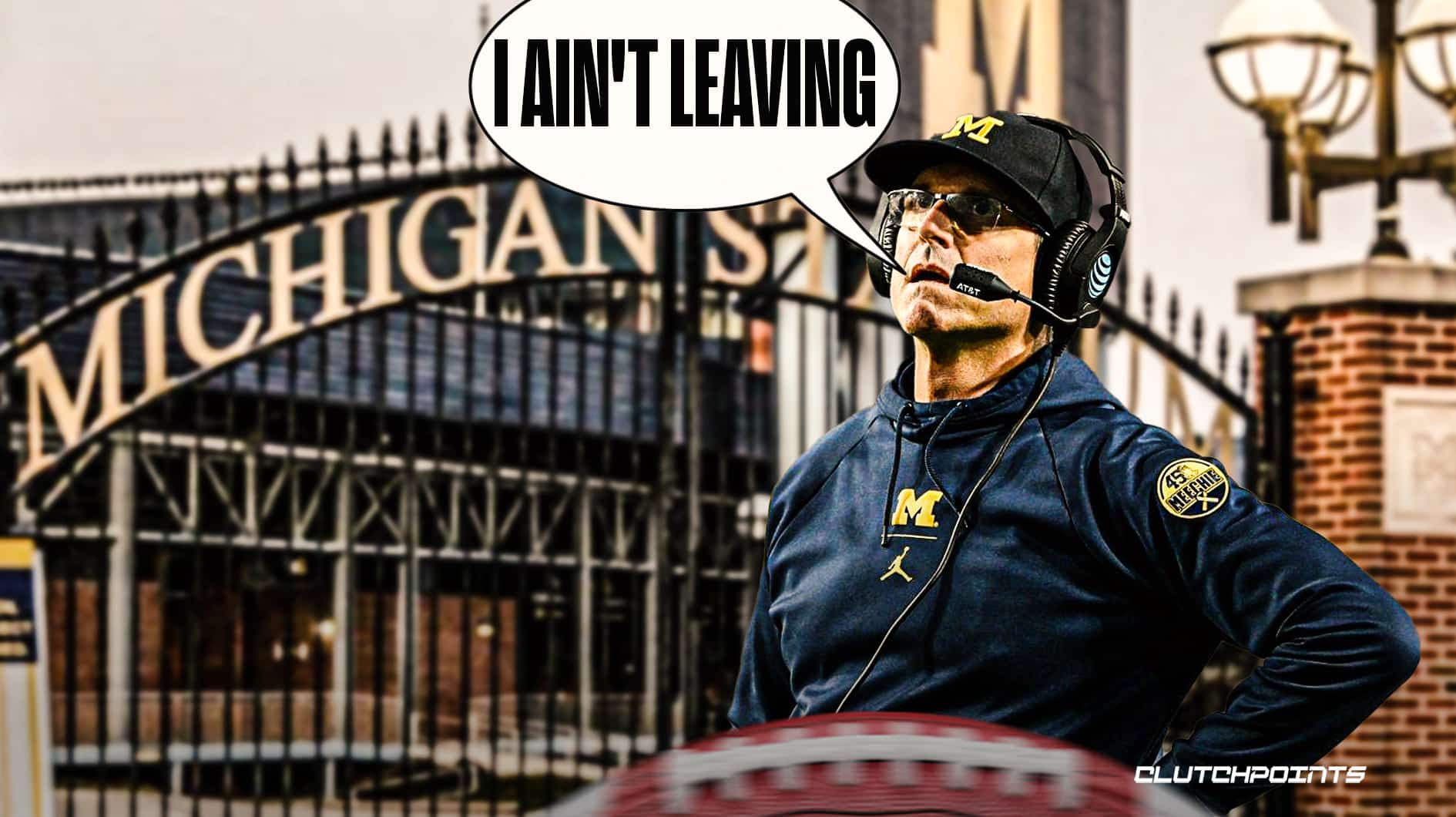
Long before we knew anything about Connor Stalions and the Michigan football program's sign-stealing operation, Michigan was simultaneously putting out fires internally while also finding itself in hot water with the NCAA.
In January 2023, shortly after Jim Harbaugh had flirted with the idea of a jump back to the NFL, Michigan Wolverines co-offensive coordinator Matt Weiss was first placed on leave by the University and soon after fired for “fraudulent activity involving someone accessing university emails accounts without authorization” at the team's training facility, according to Austin Meek of The Athletic.
The University of Michigan police were the first ones to investigate the computer access crime allegedly committed by Weiss, and soon after, the FBI also got involved. The investigation into Weiss is still on-going.
Meanwhile, the NCAA was investigating the Michigan football program for four potential “Level II infractions that involve impermissible contact with recruits during the COVID-19 dead period, an analyst performing coaching duties in practice and other low-level violations,” per Austin Meek and Nicole Auerbach of The Athletic. These infractions alone are minor and wouldn't result in any punishment for Jim Harbaugh.
But to make matters worse, a Level I violation was also handed down to Harbaugh because he allegedly provided the NCAA with false or misleading information regarding the investigation. Per NCAA guidelines, a Level I violation is considered a “severe breach of conduct” that “seriously undermine or threaten the integrity of college sports.” (h/t Ryan Ford and David Jesse of the Detroit Free Press). If only we knew what else was to come.
Michigan hits Harbaugh with self-imposed three-game suspension
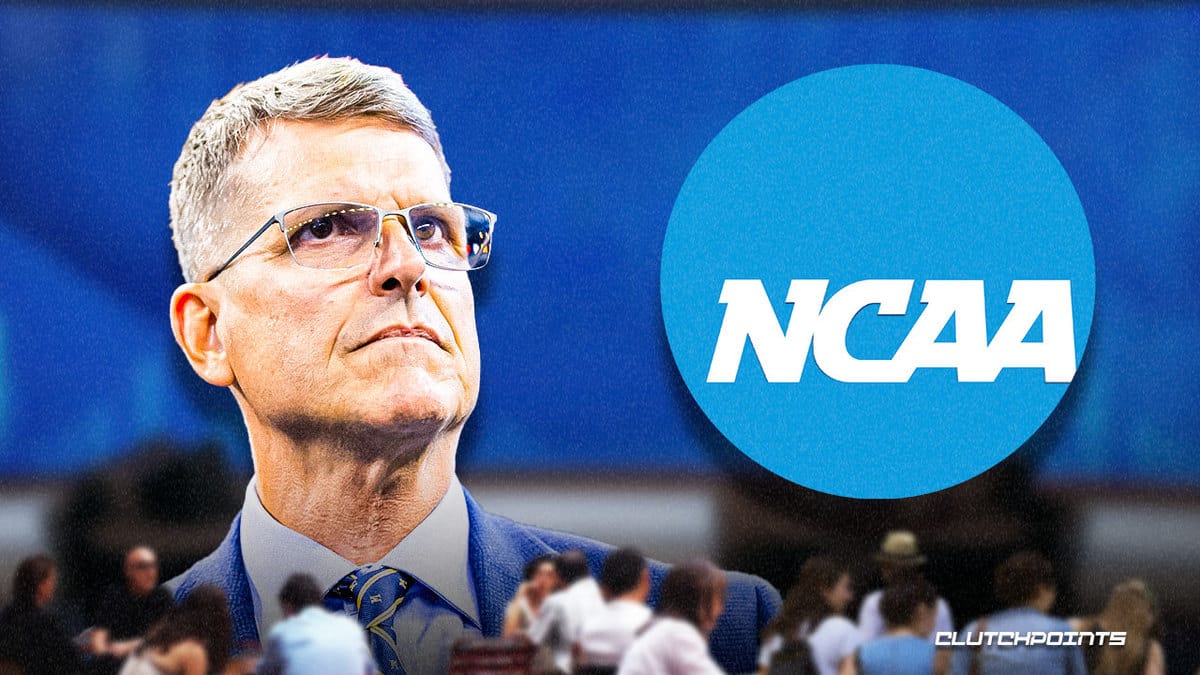
On Aug. 21, just weeks before the start of the 2023 college football season, the University of Michigan announced that coach Jim Harbaugh would be suspended for the Wolverines' first three games of the season.
“While the ongoing NCAA matter continues through the NCAA process, today’s announcement is our way of addressing mistakes that our department has agreed to in an attempt to further that process,” Michigan Athletic Director Warde Manuel said in a prepared statement, per Adam Rittenberg, Senior Writer at ESPN. This three-game suspension came as a result of the NCAA's infractions committee rejecting an initial agreement between Harbaugh and the NCAA for a four-game suspension, according ESPN's Pete Thamel.
This self-imposed three-game suspension raised the question, ‘Why would Michigan suspend Jim Harbaugh at all when it looked like the NCAA wouldn't be handing down a punishment until 2024?' The simple answer to that question: the University of Michigan wanted to make itself look good in the eyes of the NCAA, who theoretically may go lighter on a punishment in 2024 because the school took matters into their own hands and disciplined Harbaugh on their own. And yes, there is historical precedent for swift action by a university leading to lesser punishments by the NCAA down the line.
It was just 12 years ago when the Jerry Sandusky child sex abuse scandal rocked Penn State and the entire sports world. In the aftermath of the events and subsequent punishments, former NCAA President Mark Emmert told ESPN's Bob Ley on Outside The Lines that the NCAA ultimately decided against imposing catastrophic penalties onto the university because of Penn State's immediate corrective action after the scandal broke, which included firing head coach Joe Paterno and forcing the resignation of President Graham Spanier, while also providing full cooperation with the NCAA.
The University of Michigan would need to get used to “fully cooperating” with the NCAA because yet another scandal was about to come to light.
The NCAA investigates the University of Michigan…again
On Oct. 17, an outside investigation firm approached the NCAA with findings that the Michigan football program was improperly scouting future opponents and stealing play-calling signs from those schools, an operation that was spearheaded by Connor Stalions, an analyst on the Michigan staff. A day later, the NCAA informed Michigan and the Big Ten that they had opened an investigation into those claims. And in the two weeks since then, with every twist and turn in this unbelievable story, Jim Harbaugh and the Michigan Wolverines football program only looks guiltier than they did previously.
Earlier today, Bruce Feldman and Max Olson of The Athletic published a behemoth story, littered with quotes coming from 50 FBS coaches who participated in an anonymous survey related to the Michigan football scandal. Predictably, Michigan was hammered in the piece.
The coaches surveyed were asked on a scale of 1 to 5, how severe are the allegations against Michigan. Almost half of the coaches surveyed rated it a 5. The average score was 4.2, and only two coaches ranked it below a 3.
Here are some of the harsher quotes from the piece:
-
“It’s easy to call plays when you know what the defense is,” said a Pac-12 head coach. “It’s a huge deal that someone went to another game and filmed all their signals. That’s Spygate stuff. They were flying around the country. It’s crazy.”
-
“That’s one of the few rules that nobody is brave or stupid enough to just step over,” said one staffer at an SEC program. “My God, what idiots. Doing it is one thing. Getting caught is an entirely other thing.”
- “I think you should be fired for that stuff,” one Group of 5 head coach said. “Doing stuff like that where you violate all the ethics of sportsmanship, that’s horrible.”
-
“I’ll never understand how Jim Harbaugh does what he wants, and nobody says anything. Michigan doesn’t care. No one holds him accountable. These guys haven’t held him accountable for anything,” one Power 5 coach said.
- “Who paid for this? There’s no way this kid paid for it out of his own pocket. You can’t tell me Jim didn’t know. This is the same guy whose answers to the recruiting thing (allegations stemming from the COVID-19 dead period) was to say, ‘I don’t remember,’” says one Pac-12 head coach.
- “Everyone is watching this,” one Mountain West defensive coordinator said. “A slap on the wrist, and everyone will be doing it.”
So now we've arrived back to the present, where we're left to wonder what will eventually happen to Jim Harbaugh and the Michigan football program.
One thing worth noting: It’s not just that this is happening. It’s that it’s happening to one of the most prestigious and successful programs in the long, storied history of college football.
It’s that it’s happening to Jim Harbaugh, a polarizing, iconic football coach whose profile has only been raised because of his ability to turn around a Michigan football program that had floundered for over a decade before he arrived. It's that it's happening in the Big Ten, the oldest Division 1 athletic conference in the country, a conference that prides itself on the academic achievements and integrity of its programs, so much so that in a move that could only be considered “holier than thou,” the Big Ten once split itself up into two divisions called “Leaders” and “Legends.”
It's not just that it's happening. It's about what could end up happening because what could end up happening to Jim Harbaugh and the Michigan football program is something we haven't seen in a very long time, and for good reason. It's a set of sanctions so severe that the only appropriate way to quantify its impact on the program in question is with two haunting words: Death Penalty.
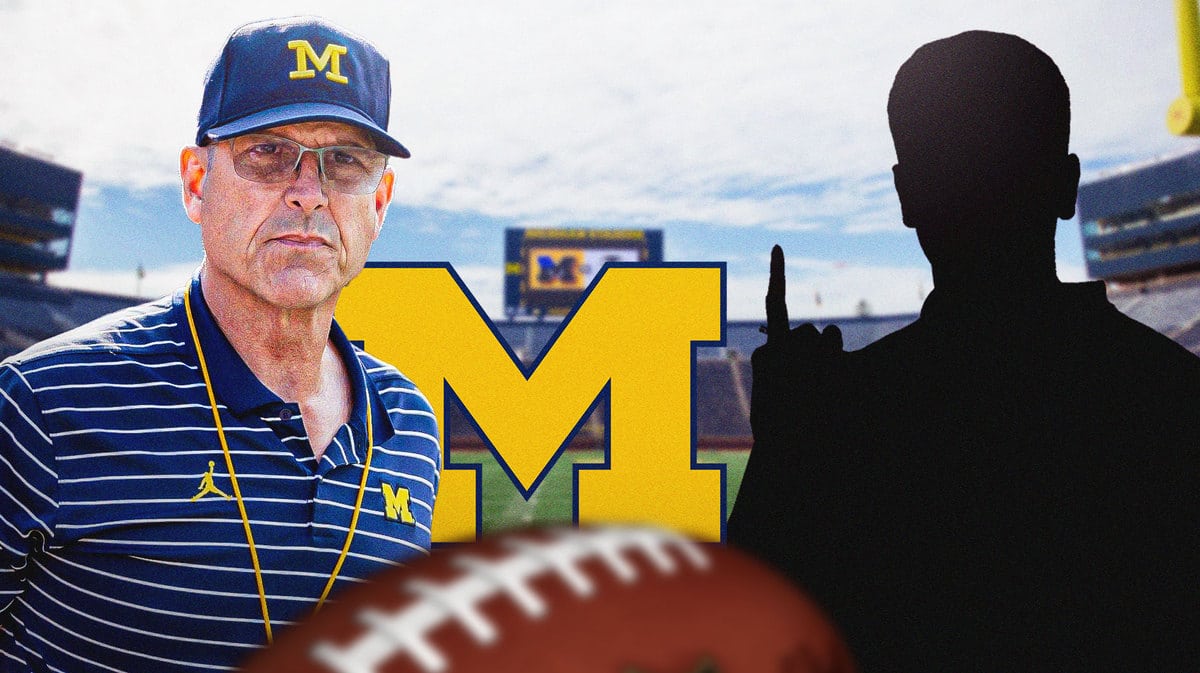
What is the NCAA's ‘Death Penalty?'
According to the National Collegiate Athletic Association, the ‘Death Penalty' is defined as such:
“The ‘death penalty’ is a phrase used by media to describe the most serious NCAA penalties possible. It is not a formal NCAA term. It applies only to repeat violators and can include eliminating the involved sport for at least one year, the elimination of athletics aid in that sport for two years and the school relinquishing its Association voting privileges for a four-year period. A school is a repeat violator if a second major violation occurs within five years of the start date of the penalty from the first case.”
Now, the way I see it, there are two big questions that need to be answered:
- Can it be proven that Jim Harbaugh had no knowledge of the operation that Connor Stalions was running?
- Will the Level I violation the NCAA hits Jim Harbaugh with end up being the catalyst for a Death Penalty?
The answer to question number one is likely going to be “No.” At this point, it would be stunning if we came to find out that, without a shred of doubt, Jim Harbaugh knew nothing of what was going on with Stalions.
If he didn't know what Stalions was up to, it's not a great look for Harbaugh either. Sure, he has many things to worry about on a day-to-day basis, dealing with players and his assistants and game plans and media availability, but to have no knowledge whatsoever over what a member of your staff is doing to give your team a better chance to win would suggest an almost purposeful, calculated ignorance on the part of Harbaugh and the rest of his staff.
The second question is much tougher to answer. There is only one modern example where the NCAA dealt a punishment so extreme to a Division 1 program. In 1987, the NCAA hit Southern Methodist University with the “Death Penalty” two years after the NCAA put SMU on probation for recruiting violations related to improper under-the-table payments to both players and the families of players.
Nowadays, in the NIL-era of college sports, it may seem like a minor infraction that players and their families were being paid a few hundred bucks under the table from time to time. But in the '80s, the NCAA didn't treat it as such.
As a result, the NCAA essentially shut the SMU football program down for two years. The 1987 season was immediately canceled, and the 1988 season, which was initially supposed to see SMU playing only road games, ended up being canceled as well because SMU could not field a full team.
The NCAA banned SMU from playing in bowl games or on national television until 1989. The number of full-time assistant coaches on the staff was cut in half, and the school couldn't hand out the normal allotment of scholarships until 1992. SMU wouldn't finish a season with a record above .500 until 1997, and it would be another 12 years after that before the Mustangs would have a winning record again.
Is this what is in store for the Michigan football program? I'd say it's definitely possible but ultimately not likely.
Back in 2012, I firmly believed that the NCAA would hit Penn State with a death penalty, and they ended up coming up short of that. Stealing signs, although unethical in the college football world, is not as serious or horrifying as what happened in State College.
The NCAA will rightfully be careful when it comes to potentially shutting down a program, especially one that has historically had a great deal of success, and not just in football. But the fact that Jim Harbaugh is already facing a Level I violation seems to indicate that Michigan could be considered a “repeat violator,” which would put the Wolverines in harm's way for the death penalty.
I have no horse in this race. I'm a college football agnostic who has no interest in seeing the Michigan football program either thrive or falter on a year-to-year basis. I'm just laying things out the way I see it. And here's what I see:
The tidal wave is coming, and soon enough it's going to crash down onto Ann Arbor. Whether it ends up being a program-killer remains to be seen, but I assure you that even if the grim reaper doesn't show up to hand out a “death penalty,” not everyone will be able to get out unscathed.




